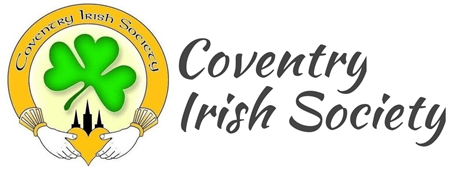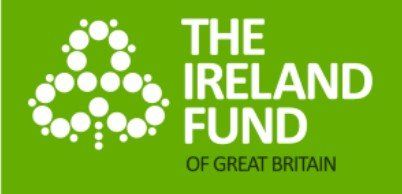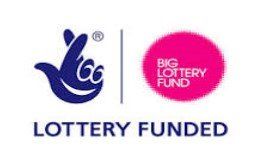Exploring the Global Impact of St. Patrick's Day: From Montserrat to Melbourne and Beyond
May 16, 2024
St. Patrick's Day, observed annually on March 17th, is not just a date on the calendar; it's a global phenomenon that unites people in celebration of Irish heritage and culture. As I reflect on the festivities that unfolded this year, I'm struck by the profound impact of this beloved holiday, which transcends borders and brings together communities from all corners of the globe. From the bustling streets of Dublin to the vibrant cities of Buenos Aires, Tokyo, and beyond, St. Patrick's Day is a testament to the enduring legacy of Ireland's patron saint. What began as a religious feast day in Ireland has evolved into a worldwide celebration, thanks in part to the millions of Irish immigrants who carried their traditions with them to distant shores.
One such place is Montserrat, a tiny Caribbean Island with a rich history intertwined with Irish influence. Settled by English and Irish immigrants in the 17th century, it earned the nickname "Emerald Isle of the Caribbean." However, its past also includes slavery and rebellion, notably the St. Patrick's Day Rebellion in 1768 led by a slave named Cudjoe. Despite suppression, it symbolises resistance. Over time, Montserrat's culture evolved, blending Irish, African, and Caribbean traditions. Today, St. Patrick's Day is celebrated vibrantly, honouring the island's heritage and spirit of independence. Here, St. Patrick's Day holds profound significance, not only as a day of celebration but also as a commemoration of a historic slave revolt. The spirited week-long festival honours the island's complex heritage, with colourful masquerades and lively festivities that echo the resilience of its people.
Traveling across continents, I find myself in Buenos Aires, Argentina, where the streets come alive with music and dance on St. Patrick's Day. Despite being dubbed "The Paris of South America," the Argentine capital takes on a distinctly Irish flair as it hosts South America's largest celebration of the holiday. It's a testament to the global reach of Irish culture and the power of community to unite across borders. In Tokyo, Japan, a fascinating fusion of Japanese tradition and Irish customs defines the annual St. Patrick's Day parade. Against the backdrop of bustling city streets, participants don traditional costumes and showcase their Irish spirit, demonstrating the universal appeal of this beloved holiday.
Closer to home, cities across the UK, including Birmingham and London, embrace St. Patrick's Day with gusto. From lively parades to spirited performances, the streets resonate with the sounds of Irish music and laughter. It's a reminder of the enduring connection between Ireland and its diaspora, spanning generations and continents.
In recent decades, Australia has witnessed a significant influx of Irish migrants seeking new opportunities and experiences in the land Down Under. This wave of migration has brought a fresh infusion of Irish culture and traditions to cities like Sydney and Melbourne. In Sydney, more than 80,000 people flock to the streets for the St. Patrick’s Day Parade and Family Day, making it the largest event of its kind in the southern hemisphere. The festivities reverberate with the vibrant colours of Irish flags, lively music, and the unmistakable rhythm of traditional Irish dancing. Meanwhile, in Melbourne, the Irish community comes together to mark the occasion with a variety of events, from pub gatherings featuring live Irish music to cultural festivals showcasing the rich heritage of the Emerald Isle.
Yet, amidst the global celebrations, one destination stands out in my mind: Chicago. As the Chicago River turns a brilliant shade of green and the city streets transform into a sea of emerald, there's an undeniable magic in the air. For me, experiencing St. Patrick's Day in Chicago holds a firm place on the bucket list. An idea long batted about between me and my dad, I hope before long we will make the journey over to the American Mid-West.
As we reflect on the recent St. Patrick's Day celebrations that unfolded across the UK and beyond, it's evident that this day holds a special place in the hearts of many. From the lively streets of Birmingham and London to the spirited gatherings in Manchester and Liverpool, the essence of Irish culture was embraced with enthusiasm. These festivities, which took place just recently, serve as a reminder of the enduring connections between Ireland and its global diaspora. As we look back on this year's global celebration, there's a collective anticipation for the opportunity to partake in the joyous camaraderie once again, wherever the journey may lead.
Article by Kate O'Mahony
April 6, 2025
There are over 13,000 survivors of Ireland’s mother & baby homes living in Britain. “Philomena’s Law” seeks to remove a barrier to many survivors seeking the redress that they are entitled to by protecting redress scheme payments from being calculated within means-tested benefits & social care arrangements. Our Midlands Irish Survivors Service supports former residents of institutional abuse in Ireland. As part of this work, we are involved with Philomena’s Law, which will hopefully be passed in the coming months. Many of you may be familiar with Philomena Lee, who this law is named after. The story of Philomena’s search for her son Anthony (who she gave birth to in a Mother and Baby Home in County Tipperary) was the basis of the Oscar-nominated film Philomena, which stars Judi Dench and Steve Coogan. Labour MP Liam Conlon has introduced this draft legislation in the House of Commons in an effort to get a fairer deal for Survivors of institutions. The current redress scheme for Survivors enables former residents to receive financial compensation from the Irish government for the time they spent in Mother and Baby Homes. As it stands, any Survivor who is receiving means-tested benefits when they receive a compensation payment from the scheme is in danger of losing these benefits. This has a huge impact on Survivors who are yet again being denied the justice and kindness they deserve. If this legislation is passed, it will stop these benefits from being affected, and some cases, ceased altogether. Getting this law passed would change the lives of so many. As a charity, we are aware of many Survivors who have prolonged accepting the redress payment, or who have simply felt unable to accept it at all due to a fear of being penalised for using these funds. We have been working with Liam Conlon, and with other organisations supporting Survivors to try to raise awareness and to promote support for this law, so that it has the best possible chance of being implemented. The most effective and important way to support this law is to write to your local MP and ask them to publicly back Philomena’s Law. We would urge you to use the below email addresses to contact your local MP in Coventry: Zarah Sultana, Labour MP for Coventry South: zarah.sultana.mp@parliament.uk Mary Creagh, Labour MP for Coventry East: mary@marycreagh.co.uk Taiwo Owatemi, Labour MP for Coventry North West: taiwo.owatemi.mp@parliament.uk To get the best chance of your MP seeing your email, you should add ‘Constitutent Request’ in the subject of this email. We hope you will lend us the support we need to get justice for Irish Survivors. If you have any questions, do get in touch with Manisha O’Malley (Survivors Co-ordinator) at manisha.omalley@covirishsoc.org.uk or call us on 02476256629. You can follow the link below to download a free letter template, which you can send to your local MP in support of Philomena's Law.

April 2, 2025
Mental Health Support Worker (Post is for a one year contract - further funding might be available after one year subject to additional grant aid). Salary: £10,000 per year – 15 hours per-week 10-4pm Monday, Wednesday and Thursday (excluding lunch). Location: Eaton House, 1, Eaton Road Near Coventry City Centre. Established in 1993, Coventry Irish Society (CIS) is a Charity providing a wide range of community health and support services to the Irish community in Coventry. The Coventry Irish Society requires a Mental Health Support Worker to set up, organise and run a half day per-week Dementia Support Group and a half day per- week Walking Group for the local Irish Community. The role includes working with Carers and increasing mental health awareness to support the local Irish community. The charity predominantly supports older Irish but also supports Second and Third Generation Irish, Irish Survivors and Irish Travellers. . Please email your up to date CV with a cover letter clearly detailing your relevant experience in line with requirements of the role. A CV without an accompanying cover letter will not be accepted. simon.mccarthy@covirishsoc.org.uk or email Simon for further information. Actively interviewing. We reserve the right to close this vacancy early. We are obliged to ask all successful applicants to complete a DBS Disclosure form

March 21, 2025
Coventry Irish Society had a fabulous time celebrating St. Patrick's Day 2025 with members and supporters. From our Lunch Club to celebrating at Christ the King Parish Church and All Souls Primary School. View images from this year's celebrations below. Coventry Irish Society Celebrates St. Patrick's Day 2025 at Christ the King Parish Church
Your support can make a difference
Consider contributing as little or as much as you can. Every pound donated goes toward keeping our programmes and activities available.
© 2025
All Rights | Coventry Irish Society
Coventry Irish Society is a Registered Charity No. 1150290 : Company Limited by Guarantee No. 8235510
Privacy Statements | Website powered by : Duda Site Builder | Website Developed by : First Stop Web Design
We have taken all steps within our means to ensure this website broadly complies with W3C and The Equality Act standards.




